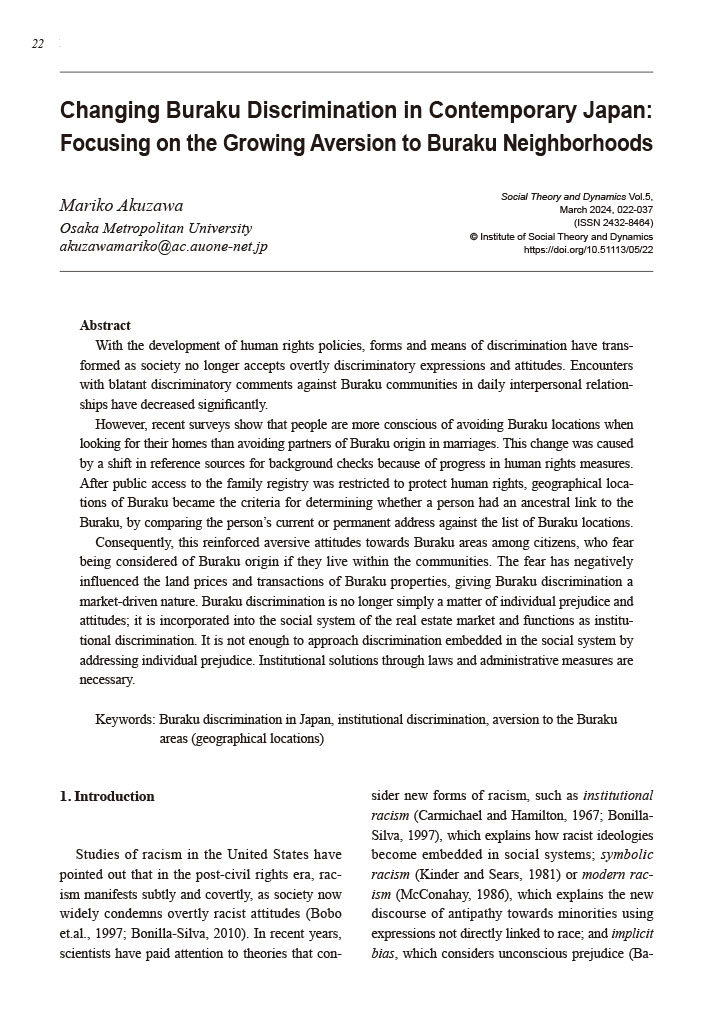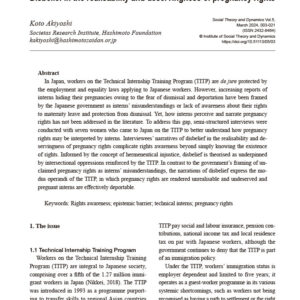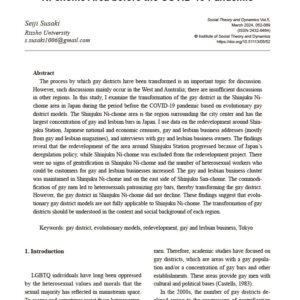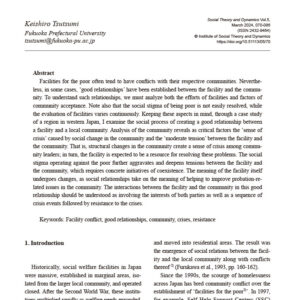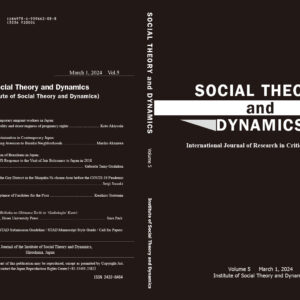Description
With the development of human rights policies, forms and means of discrimination have transformed as society no longer accepts overtly discriminatory expressions and attitudes. Encounters with blatant discriminatory comments against Buraku communities in daily interpersonal relationships
have decreased significantly.
However, recent surveys show that people are more conscious of avoiding Buraku locations when looking for their homes than avoiding partners of Buraku origin in marriages. This change was caused by a shift in reference sources for background checks because of progress in human rights measures. After public access to the family registry was restricted to protect human rights, geographical locations of Buraku became the criteria for determining whether a person had an ancestral link to the Buraku, by comparing the person’s current or permanent address against the list of Buraku locations.
Consequently, this reinforced aversive attitudes towards Buraku areas among citizens, who fear being considered of Buraku origin if they live within the communities. The fear has negatively influenced the land prices and transactions of Buraku properties, giving Buraku discrimination a market-driven nature. Buraku discrimination is no longer simply a matter of individual prejudice and attitudes; it is incorporated into the social system of the real estate market and functions as institutional discrimination. It is not enough to approach discrimination embedded in the social system by addressing individual prejudice. Institutional solutions through laws and administrative measures are necessary.

